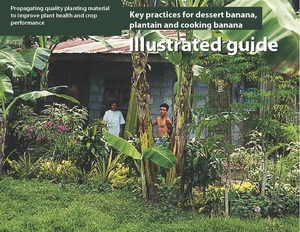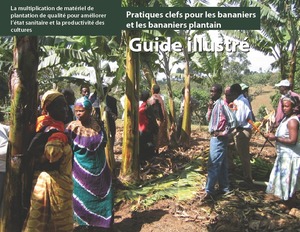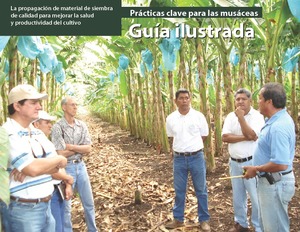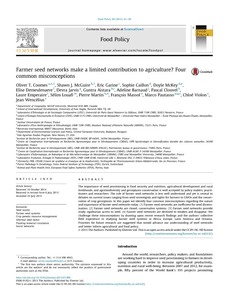CIRAD is a French research centre working with developing countries to tackle international agricultural and development issues.
Status
CIRAD (Centre de coopération internationale en recherche agronomique pour le développement) is a public industrial and commercial enterprise (EPIC) under the joint authority of the Ministry of Higher Education and Research and the Ministry of Foreign and European Affairs.
Mandate
CIRAD works with the whole range of developing countries to generate and pass on new knowledge, support agricultural development and fuel the debate on the main global issues concerning agriculture.
CIRAD is a targeted research organization, and bases its operations on development needs, from field to laboratory and from a local to a global scale.
Activities
CIRAD's activities involve the life sciences, social sciences and engineering sciences, applied to agriculture, food and rural territories.
CIRAD works hand-in-hand with local people and the local environment, on complex, ever-changing issues: food security, ecological intensification, emerging diseases, the future of agriculture in developing countries, etc
Members:
Resources
Displaying 46 - 50 of 72Propagating quality planting material to improve plant health and crop performance. Key practices for dessert banana, plantain and cooking banana: Illustrated guide.
This illustrated guide summarizes the key practices for producing clean planting material of banana with a high yield potential for smallholders, depending on the pests and diseases which are present.
The guide is also designed to contribute to better planning of the propagation of planting material for rural development and disaster relief projects.
La multiplication de materiel de plantation de qualite pour ameliorer l’etat sanitaire et la productivite des cultures. Pratiques clefs pour les bananiers et les bananiers plantain: guide illustre.
This illustrated guide summarizes the key practices for producing clean planting material of banana with a high yield potential for smallholders, depending on the pests and diseases which are present. The guide is also designed to contribute to better planning of the propagation of planting material for rural development and disaster relief projects.
La propagacion de material de siembra de calidad para mejorar la salud y productividad del cultivo: practicas clave para las musaceas: guia ilustrada
This illustrated guide summarizes the key practices for producing clean planting material of banana with a high yield potential for smallholders, depending on the pests and diseases which are present. The guide is also designed to contribute to better planning of the propagation of planting material for rural development and disaster relief projects.
Farmer seed networks make a limited contribution to agriculture? Four common misconceptions
The importance of seed provisioning in food security and nutrition, agricultural development and rural livelihoods, and agrobiodiversity and germplasm conservation is well accepted by policy makers, practitioners and researchers. The role of farmer seed networks is less well understood and yet is central to debates on current issues ranging from seed sovereignty and rights for farmers to GMOs and the conservation of crop germplasm. In this paper we identify four common misconceptions regarding the nature and importance of farmer seed networks today.
La question foncière à l’épreuve de la reconstruction en Côte d’Ivoire
Le conflit ivoirien (2002-2011) a exacerbé des tensions foncières anciennes engendrées par d’intenses migrations agraires, notamment dans la zone forestière restée sous contrôle gouvernemental durant la crise. Une loi sur le domaine foncier votée en 1998 avait tenté d’apporter une réponse à ces tensions par une politique ambitieuse de sécurisation des droits coutumiers par l’enregistrement de titres de propriété.






